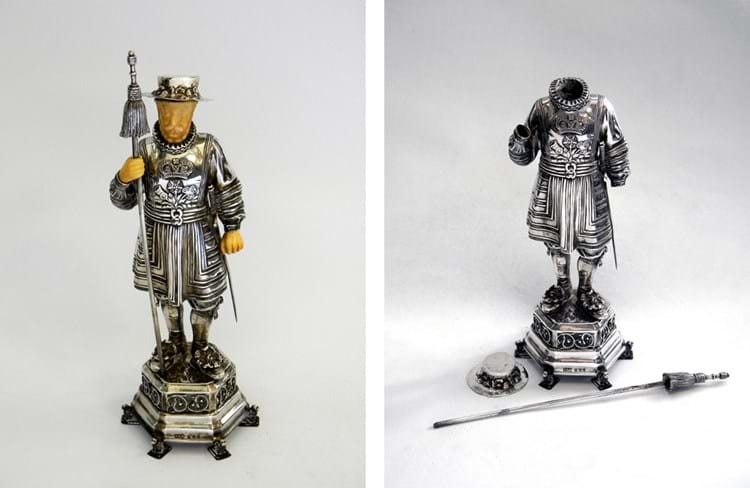
In advance of the Original Miami Beach Show, officials ordered that the finials and insulators of Georgian and Victorian silver tea and coffee pots were destroyed, while elephant ivory and other elements from etuis and gold boxes were removed and crushed.
The single shipment of silver and objects of vertu, sent by dealers Paul Bennett, Michael Sedler, The Antique Enamel Company and John Bull to Miami, had been intercepted by US customs just days prior to the show opening on January 28.
The dealers and their shippers had not included proper mention of CITES-protected elements, such as tortoiseshell and mother-of-pearl, on the import paperwork in the belief that the quantities of material involved were negligible.
However, after some pieces were found to be contraband under US law, the owners were contacted by the Fish and Wildlife Service and told that the offending elements had to be destroyed.
An officer of the service met with each dealer for an hour to issue them with a warning and witness the destruction before releasing the other goods and permitting the dealers to continue to the fair.
Maurice Dubiner, proprietor of Paul Bennett Antiques, told ATG his son Jonathan had found it necessary to smash the handles of two silver teapots and two coffee pots to remove ivory insulators and had surrendered the finials of two silver vegetable tureens.
He said the episode “had cost them a fortune” but on reflection considered the firm “very lucky” to have been given back the defaced pieces (that can be repaired and replaced with plastic elements) and to have escaped without further penalties.
Ken Bull of John Bull Antiques told ATG that wildlife officials had found 10 pieces with ivory elements in his stock.
He was asked to break the ivory ruler from a late 18th
century etui and to prise the face and hands from a c.1900 German silver and ivory figure of a beefeater.
“It was barbaric,” he says. “We are not talking about elephant tusks or ivory tankards. These are pieces you can hold in your hand.”
He was also told to pay a small fine for failing to properly describe a silver beaker with a handle made from the tusk of a warthog – a species not on the endangered list.
It was the first incident of this type that Bull had faced in 25 years of attending the Miami Beach show.
“It has upset me tremendously – I feel I don’t want to do any more fairs in America. It leaves a bitter taste.”
Feathers removed
John Jaffa of The Antique Enamel Company, specialists in English and continental gold boxes and objects of vertu, was instructed to deface items of stock valued at several hundred thousand pounds.
Ivory elements from 18th century gold and hardstone necessaires, shipped by Jaffa in error, were crushed.
He was also told to strip the feathers from the ‘singing bird’ of an 18th century Swiss gold and enamel music box as he could not prove at short notice the species they were from.
Jaffa told ATG it was the first time he had encountered a problem selling a singing bird box in the US despite the long-standing laws that prohibit the sale of objects that include the feathers of birds native to North America (or those of any endangered species).
Jaffa did not believe the authorities had acted with a light touch in choosing to issue a warning.
“A slap on the wrist would have been to say ‘take them home and check the law,’ rather than being asked to destroy 18th century pieces.”
Federal laws, covering the entire US, introduced in February 2015 tightly restrict ivory imports and interstate sales.
In essence, the regulations ban the commercial import of African ivory of any age, while domestic and export trade will be limited to antiques defined in law as objects more than 100 years old.
Many states have subsequently sought to introduce tougher internal laws, including New York, where trade is permitted only when ivory comprises less than 20% of the volume of an object.





